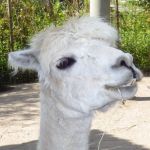The alpaca is a domestic camelid from South America.
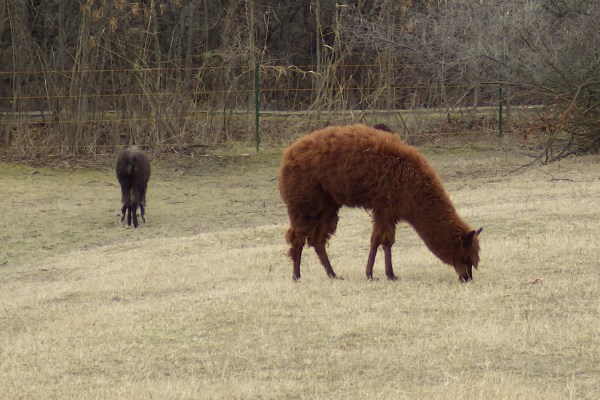
Alpaca (Vicugna pacos), Szeged Zoo.
The alpaca is the domesticated version of the wild vicuña, but people did not always think so. Previously alpacas were believed to be more closely related to llamas. In fact alpacas, llamas and vicuñas were though to be more closely related than they are, but modern DNA tests showed enough differences to justify why vicuñas and their domesticated descendants the alpacas are now classified in the genus Vicugna which is distinct from the genus Lama.
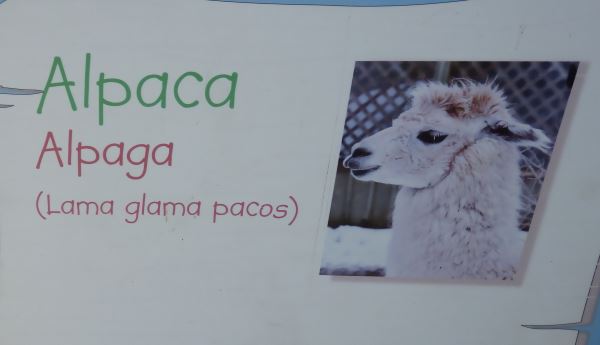
The alpaca sign at the Toronto Zoo.
Notice that the scientific name is given as Lama glama pacos not Vicugna pacos.
Well, people used to think that alpacas were really more closely related to llamas but modern DNA tests showed that they really are closer to the vicuña which is now believed to be the alpaca’s wild ancestor.
Alpacas, just like their cousins the llamas, can sometimes spit on you it you go too close. This is a protection mechanism. The spit is usually not just saliva but stuff from the alpaca’s stomach. But they don’t necessarily do so, and I was able to take a close up picture without having alpaca stomach content all over me.
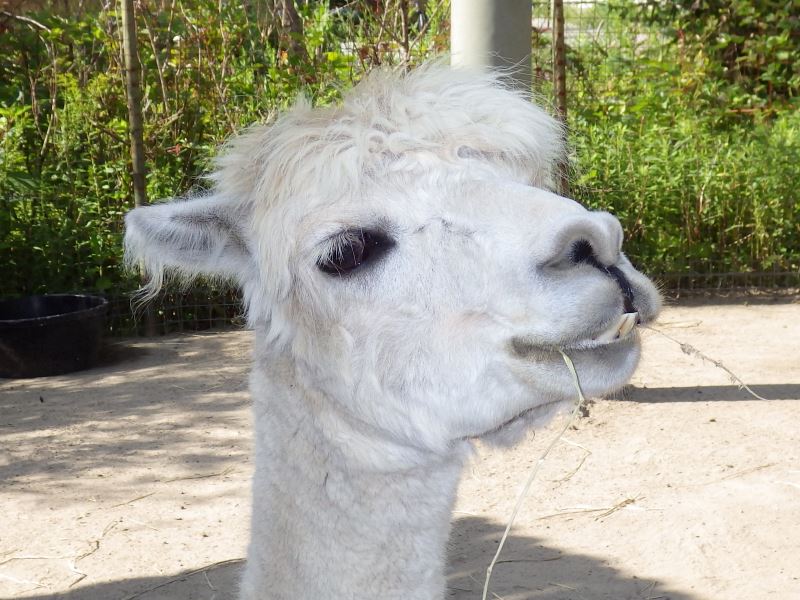
Alpaca in the Toronto Zoo (Kid’s Zoo Exhibit).
The primary value of the domestic alpaca is its wool which is considered to be superior to sheep’s wool. One can only guess that because vicuña wool was already highly priced since ancient times in South America it was just less hassle to domesticate the beasts than to capture them every couple of years for sheering.
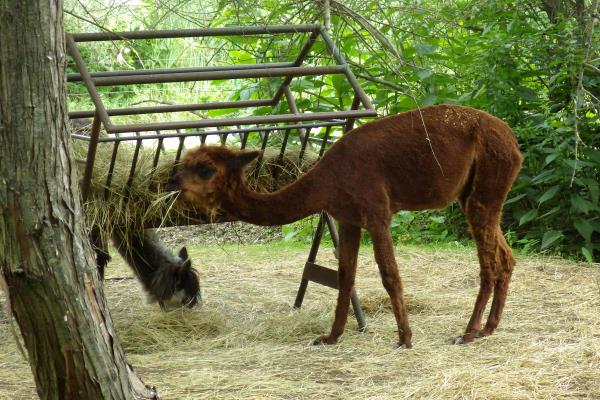
Alpacas in the Szeged Zoo.


